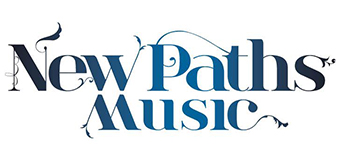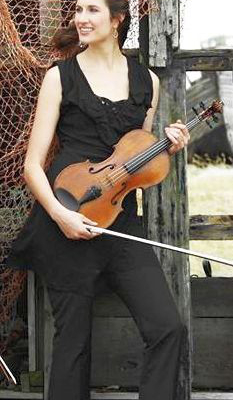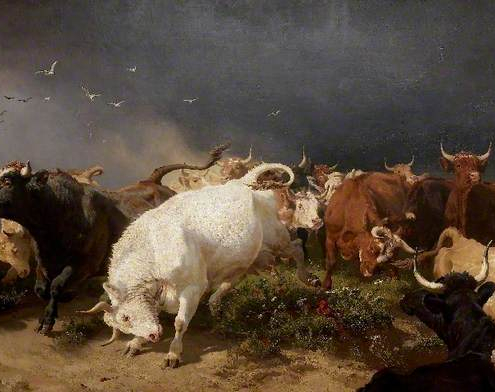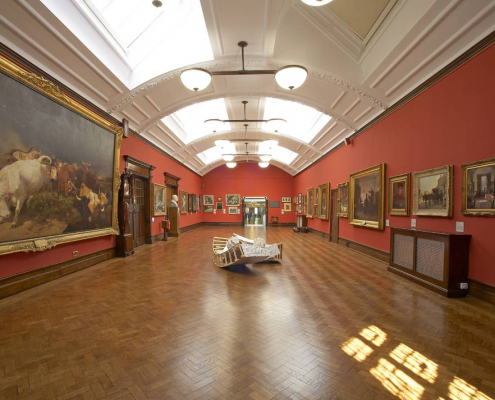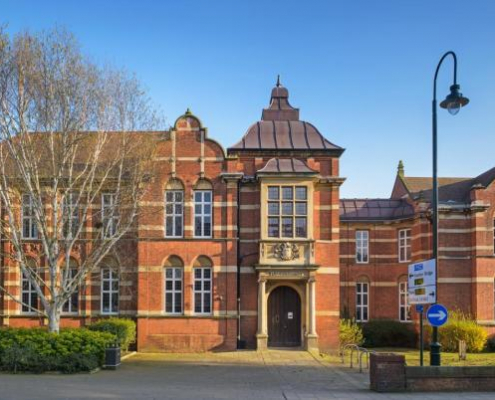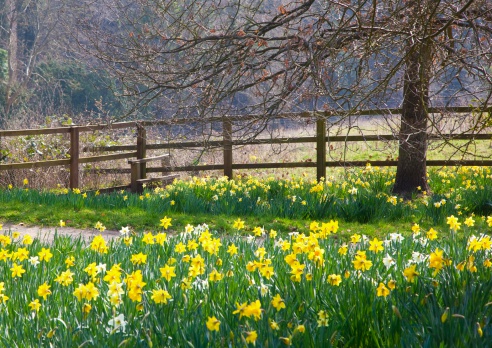With now only six weeks until the New Paths Spring Festival we feature half a dozen masterpieces on the programme which everyone should hear before they ‘kick the bucket’:
Chaconne
The last movement of Bach’s Partita in D minor for solo violin – the Chaconne – is considered by many to be one of the very greatest pieces of music ever written. Maria Wloszczowska, winner of the Leipzig International Johann Sebastian Bach Competition in 2018, plays the whole partita in the exquisite medieval Quire of Beverley Minster in Chaconne, the first of our late-night concerts, on Thursday 2nd April. Fellow composer Johannes Brahms, in a letter to Clara Schumann, described the piece like this: “On one stave, for a small instrument, the man writes a whole world of the deepest thoughts and most powerful feelings. If I imagined that I could have created, even conceived the piece, I am quite certain that the excess of excitement and earth-shattering experience would have driven me out of my mind.”
Maria Wloszczowska playing the Largo from J.S. Bach’s Sonata in C major for solo violin at the 15th International Henryk Wieniawski Violin Competition in 2016.
Four Last Songs
The festival closes with Strauss’ Four Last Songs – the composer’s last completed work, written in his 80s. This astonishingly beautiful swansong contemplates eternity – “O vast, tranquil peace” – with touching equanimity and sublime peacefulness. To sing these we are thrilled to welcome to New Paths for the first time Ailish Tynan, 2003 winner of the Rosenblatt Recital Song Prize at BBC Cardiff Singer of the World, and one of the most celebrated singers of her generation.
The Rite of Spring
If pushed to choose one work which hailed and prompted the modern era in music, many people would name Stravinsky’s The Rite of Spring. Deemed unplayable by the original orchestra in Paris, and causing a riot at its premiere, this pulsating, visceral work is heard in the composer’s own version for piano duet – a virtuosic feat undertaken by pianists James Baillieu and Libby Burgess. The festival programme also features an abundance of music written in the century since Stravinsky’s ‘Music of Modernity’, and we are honoured that our Alive & Kicking strand of music by living composers has been selected for support by the Hinrichsen Foundation.
Farewell to Stromness
One of the finest composers to have lived since Stravinsky was undoubtedly the late Peter Maxwell Davies. A great ability of music is to transport us to another place, and the lyrical Farewell to Stromness does exactly that, inspired as it is by the composer’s home in Orkney. This forms part of the informal concert taking place before our Ceilidh: with café-style seating and a bar open all evening, this is the perfect chance to try out live classical music, before joining in the roaring barn dance! ‘Max’ was Master of the Queen’s Music, so it is apt that we also hear music by Judith Weir, his successor in that role, during People Look East.
“Two men; both young, both brilliant and both composers”
From the BBC Archive. On 26 February 1961, Monitor took a fascinating look at two outstanding and very different young composers, Peter Maxwell Davies and Dudley Moore.
Sweet sorrowfulness
G minor is often ascribed a particular tragic or melancholic dramatic significance in Mozart’s music, the key of many of his finest works. His String Quintet in that key is a brooding, powerful work, and – like so much of Mozart’s instrumental music – it is infused with the drama of the operatic stage. Mozart’s scoring features two violas, so for our double-act we welcome back familiar festival violist Simon Tandree and new face Simone van der Giessen. The Quintetto concert in which this work is heard, in Beverley’s beautiful Edwardian Art Gallery, is all but sold out: to get your hands on one of the last remaining seats, you can purchase a festival pass, which gives you entry to every event in the festival.
Wild cards
For the last entry in this compilation of greats at the festival, we could’ve chosen Beethoven’s Septet or his Op. 132 String Quartet, songs from Schumann’s Myrthen, or Debussy’s Prélude à l’après-midi d’un faune. But instead we pick Süße Stille from Handel’s Nine German Arias which Alexandra Kidgell, Jamie Campbell and Richard Pinel perform in Game On! on the Saturday morning of the festival. Handel’s greatest gift to humanity was his arias, and this one in his native tongue is a particularly beautiful moment of pastoral calm. The other song from that set performed in the concert is Meine Seele hört im Sehen which revels in the joy of spring in its setting of these words:
The blossoming splendour of the spring
Is the language of nature
Which, through sight,
Speaks clearly to us everywhere.
Put a trip to Beverley on your ‘bucket list’ and experience some of the best that life has to offer this spring.
And now for something completely different
We’re very much looking forward to marking Beethoven’s 250th anniversary, but if all the Beethoven veneration this year is getting a bit worthy for you, we leave you with Dudley Moore, mentioned earlier, whose irreverent take on Beethoven is the perfect way to finish the week.
